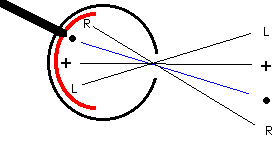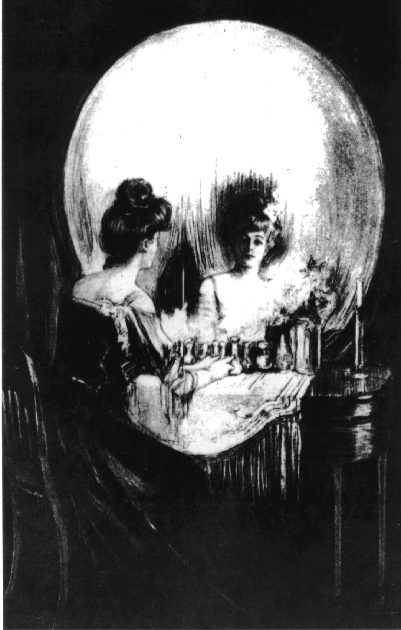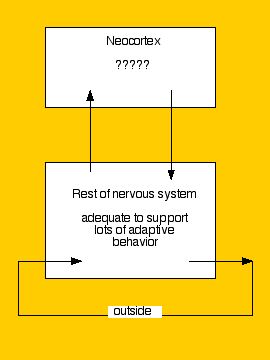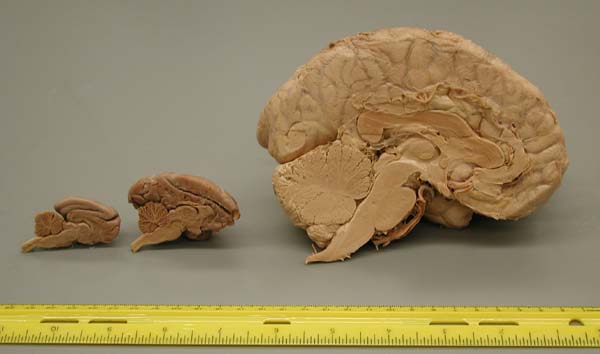Looking to the Brain for Psychotherapeutic Insights
and to
Psychotherapy for Insights into the Brain: Notes for a New Story
Paul Grobstein
Department of Biology, Bryn Mawr College
Members Forum: In-House Presentation
Psychoanalytic Center of Philadelphia
31 March 2005
notes: http://serendipstudio.org/sci_cult/mentalhealth/neuropsychotherapy/31march05/
on-line forum: http://serendipstudio.org/forum/viewforum.php?forum_id=213&start=14168
With thanks to:
Susan Levine, Bruce Levin, Syd Pulver, Elio Frattaroli, Si Share, Joe Slap, Jarl Dyrud, Warren Hampe, Gary Flaxenburg, and ... Sigmund Freud, for leaving a not surprisingly unfinished project
Alternate title:
On the unastonishing clinical relevance of the brain (if not neuroscience) for psychoanalysis and psychotherapy
The Mind and Self as Material Entities
 |
The Brain - is wider than the Sky -
For - put them side by side -
The one the other will contain
With ease - and You - beside-
Emily Dickinson
(1830-1886) |
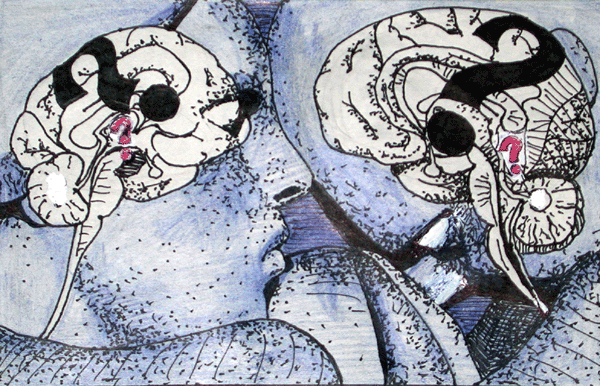 |
Problems and prospects of starting with assumption that neurobiologists and psychotherapists are exploring/manipulating the same thing:
- Historical antipathies, mutual mistrust
- Possibility that they aren't
- Discomfort that one disappears
- Discomfort that mind/self are matter, subject to "slings and arrows of outrageous fortune"
- Helps make sense of observations (trauma, psychopharmacology, brain imaging)
- Can broaden psychotherapeutic repertoire to include BOTH historical events AND genetic influences
- Can broaden neurobiological repertoire to include .... story-telling, conflict?
Finding Common Cause in an Unconscious/Conscious Distinction
The unconscious as fundamental, rather than derivitive
Is that about oneself which, at any given time, one doesn't know ...
Distinction between neurobiological and psychodynamic unconscious necessary?
The Bipartite Brain/Mind
Updating Freud (and Slap): there is no way in other than through the unconscious
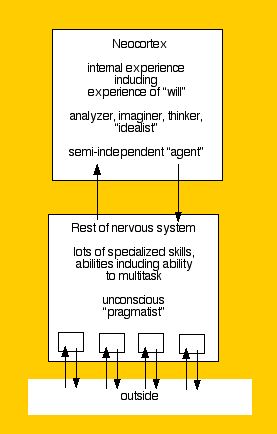
Finding Common Cause in Story-Telling?
"Story teller"/conscious as a distinct part of the nervous system (neocortex) having a distinctive kind of organization
Stories
- are not essential components of behavior
- can be causally significant for behavior, create things not otherwise there
- are not the only possible ones given inputs from unconscious
- are "coherent", involve relatively small numbers of variables, relatively simple cause/effect relationships
- typically involve "self"
- can generate meaning/purpose, or express its absence
- creates conflict
Working Together to Make Sense of Conflict?

How make sense of "repression", "projection", "transference", of conflict ... and of therapeutic efficacy?
Conflict = differences between unconscious and story? evident in behavior, sometimes also in internal experience (Nash)
Can result from
- brain damage (sensory neglect)
- genetic factors (schizophrenia)
- life experiences (trauma)
Task of psychotherapist:
- to faciliate story telling by suggesting ways to incorporate unconscious signals
- to facilitate conscious/unconscious exchange by helping conscious cause experiences that alter unconscious
- to model effective and ongoing unconscious/conscious exchange
References
| Conversations
| Mental Health
| Science in Culture
| Serendip Home |
Send us your comments at Serendip

© by Serendip 1994-
- Last Modified:
Wednesday, 02-May-2018 11:57:08 CDT




